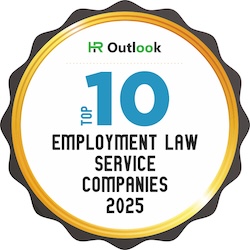Wrongful Discharge
Murray Law welcomes the opportunity to provide experienced counsel and representation to individuals subjected to a wrongful discharge from employment.
A wrongful discharge is a discharge taken for an unlawful reason.
An employee may base a wrongful discharge claim on many legal rights and provisions.
Virtually every employee’s discharge from employment is a painful event for the employee.
A discharged employee may incur financial harm, damage to a career, and suffer severe emotional distress, such as humiliation, embarrassment, and fear.
Steven Murray, an experienced employment law attorney, has successfully represented employees in discharge cases, including prevailing clients in jury trials before the United States District Court for the District of Colorado.
Steven has successfully represented employees in discharge cases before multiple United States District Courts, federal administrative agencies, and mediation proceedings.
Wrongful Discharge: Discrimination
Federal and Colorado law prohibits employers from discharging employees for a discriminatory reason.
The law prohibits discrimination based on race, color, national origin, sex, pregnancy, sexual orientation, age, disability, or religion.
Colorado law prohibits discrimination based on marital status, lawful off-duty conduct, or because the employee is a victim of domestic abuse.
Wrongful Discharge: Retaliation
Federal and Colorado law prohibits an employer from discharging an employee because the employee:
- Opposed discrimination under the law, such as filing an informal complaint of discrimination with the employer.
- Participated in an employment proceeding, such as filing a charge of discrimination with the Equal Employment Opportunity Commission or the Colorado Civil Rights Division.
- Participated in a proceeding by assisting, testifying, or participating in any investigation, litigation, or proceeding under the employment law, such as serving as a witness in an internal investigation of a discrimination charge or practice.
- An employer may not discharge an individual because the individual requested or received:
- A reasonable workplace accommodation for religion, religious beliefs, practices, or observances.
- A reasonable accommodation for a disability.
- Family or medical leave.
- A benefit or right under a law prohibiting retaliation for engaging in such activity.
Wrongful Discharge: Violation of Public Policy
Colorado recognizes a wrongful discharge claim where the employer discharges an employee in violation of public policy. This claim may exist when the employer terminates a person’s employment because:
- The employee refused to perform an unlawful act.
- The employee exercised a public right or duty.
- Wrongful Discharge: Express or Implied Contract
- A wrongful discharge claim may exist when the action violates a contract or implied contract. Examples of such potential claims include:
- The employer violates its mandatory employment policies, such as disciplinary and discharge procedures.
- The employer breaches a valid contract between the employee and employer, either written or oral.
Wrongful Discharge: Constructive Discharge
An employee may assert a wrongful discharge claim based on constructive discharge under federal civil rights laws and Colorado law.
A constructive discharge exists when an employee resigns because the working conditions are so intolerable that a reasonable person in the employee’s situation would have no other choice than to resign.
Conclusion
Murray Law welcomes the opportunity to provide counsel and legal representation to individuals serving in any employment position, confronting a wrongful discharge from employment. Please contact Steven Murray at 720-600-6642.












